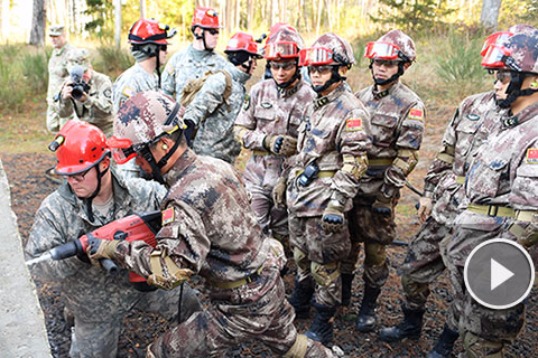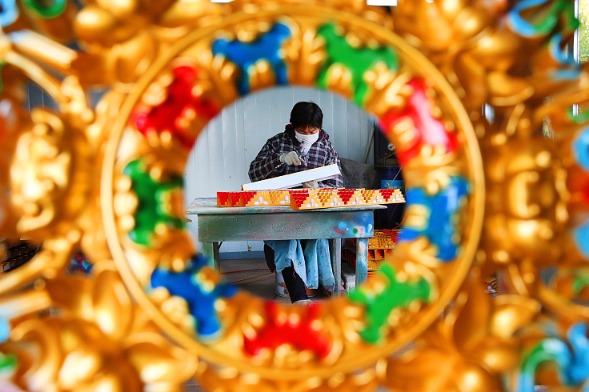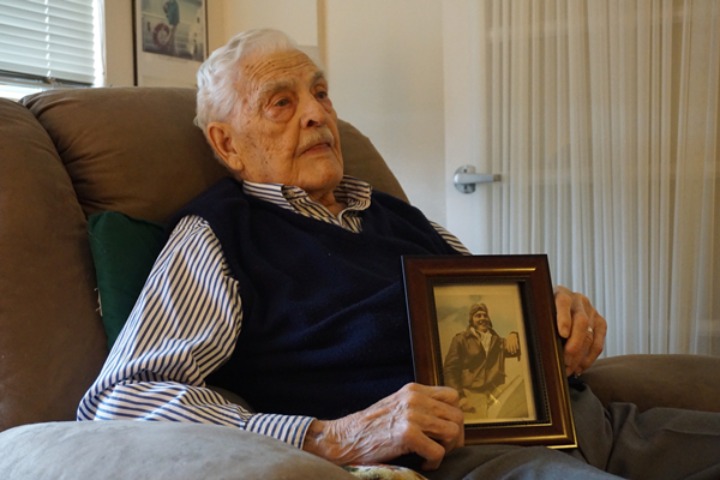'Comfort women' still waiting for apology
'The soldiers just ... waited in line. i cannot remember how many times i was maltreated each day'
Women raped during wartime in Hainan province are still awaiting an apology from Japan, even though most of them are now in their 80s.
China Daily learned that only eight of fewer than 100 survivors in the southern province are still alive.
About 200,000 women in China were forced into sexual slavery during the war. In Hainan, which was invaded and occupied by the Japanese for six years from 1939, about 10,000 were forced to become "comfort women" at around 60 comfort stations, according to Su Zhiliang, a professor at Shanghai Normal University studying the history of comfort women.
Most of them were from the local Li and Miao ethnic groups. During those six years, most of them died from the torture they received, with fewer than 100 of them surviving the war, suffering trauma both physically and mentally.
Huang Youliang, 88, is one of the eight from Hainan who are still alive. She has long had a serious rheumatic disease and cannot walk unassisted.
Since Huang has been confined to bed with her illness for many years, she is supported in her will to live by the hope of an official apology from the Japanese government.
Her nightmare can be traced to 1941, when the Japanese army occupied Lingshui Li autonomous county where she lived. Just 14 years old then, she was caught by patrolling Japanese soldiers while she was working alone on a farm one day in November.
After being raped and beaten at her home every night for nearly three months, she was taken to a local Japanese military brothel, the Liangqiao comfort station, suffering from the effects of torture.
"They (the soldiers) just came to the station and waited in line. I cannot remember how many times I was maltreated each day," Huang said.
She said she had no choice but to be submissive, or the soldiers would have killed her parents.
In June 1944, she finally escaped from the comfort station by lying that she had to hurry back for her father's funeral, with her family saying she had died of grief after her father's death. The family even built two graves near their home to fool the Japanese.
Huang and her family tried to lead a new life by moving to Baoting, a county more than 100 km from her home. But she feared she would be recaptured even when she moved back to her hometown after the war.
Chen Yabian, another former comfort woman from Lingshui county, suffered six miscarriages before having her only child.
She said that for many years she refused to say anything to her family about the time she spent at the comfort station from 1941 to 1943.
"I often woke up and cried in the evening," she said, tears streaming down her face. "I was always in pain, physically and mentally. Nothing could help me cure this pain."
She said her hatred of the Japanese only deepens every time she recalls these times.
Su, the Shanghai Normal University professor, said: "Many victims were no longer physically able to make a living. Some of them were also looked down on by other people, especially those who knew little about their suffering."
Huang's youngest son, Hu Yaqian, had to cope with people's "finger-pointing" at school because of his mother's experience as a comfort woman. This is still going on today, with Hu's son now a junior high school student.
In 2001, Huang, Chen and six other former comfort women in Hainan decided to speak out and file a lawsuit against the Japanese government, seeking an official apology and individual compensation.
It was the fourth lawsuit brought by Chinese former comfort women since 1995, according to Qiu Peipei, director of the Asian Studies Program at Vassar College in the United States.
Chen went to Japan three times to testify in Tokyo District Court in 2001, 2003 and 2006, but returned disappointed each time.
Five years of waiting ended in defeat when the court ruled against the plaintiffs. On Aug 30, 2006, it finally denied the women's demands.
Qiu wrote in her book Chinese Comfort Women: Testimonies from Imperial Japan's Sex Slaves that the court said that an individual Chinese person had no right to sue the Japanese state.
The book was co-authored with Chinese scholars Chen Lifei and Su, the Shanghai Normal University professor.
Six of the group of eight former comfort women who filed the lawsuit 14 years ago have since died. Chen Yabian and Huang are the only two still alive.
Asked if she would make another attempt, Chen Yabian said the likelihood was slim.
"I feel that my life is fading and I am worried I can no longer bear the fatigue of a long journey. Traveling to another city in Hainan is no easy feat for me, not to mention going to Japan again," she said.
"But I will be waiting (for an apology) as long as I live."
Wang Yanfei contributed to this story.
huangyiming@chinadaily.com.cn
| Zheng Jinnyu sheds tears while recalling the past at her home in Nongqing village, Lingshui county, Hainan province, in 2005. She was born in 1926 and passed away in 2006. She was raped by three Japanese soldiers while working in the fields when she was 16, and later forced to become a "comfort woman". |
| Former "comfort woman" Chen Yabian, 88, shows her home grown mangoes to visitors at her home in Zuxiao village in Lingshui county in 2005. For many years she refused to say anything to her family about the time she spent at the comfort station. |
| Zhuo Tianmei, with her daughter-in-law, covers her face and weeps while describing her ordeal as a "comfort woman", the term for those forced into sexual slavery during wartime by Japanese soldiers, at her home in Sufeng village, Lingshui county, in 2005. Zhuo, who was born in 1926, has passed away. Photos by Huang Yiming / China Daily |
| Former "comfort woman" Fu Meiju, 90, enjoys happy twilight years with her grandson's family at Tulong village of Chengmai county in Hainan last year. |
| Li Meijin, 88, a former "comfort woman", enters her home in Tulong village last year. |
| Former "comfort woman" Chen Lincun, 89, stands in front of her home in Damao town, Wanning, in Hainan, with her granddaughter this year. |
| Wang Zhifeng, 87, a former "comfort woman", rests in her bedroom at home in Tulong village last year. She lives with her son. |
| Everyday life for former "comfort woman" Huang Youliang, 88(left), is limited to just a few paces in front of the door at her home in Jiama village, Lingshui county, Hainan. She has had a serious rheumatic disease for years and cannot walk unassisted. Huang is supported in her will to live by the hope of an official apology from the Japanese government. |
(China Daily USA 08/20/2015 page6)


























